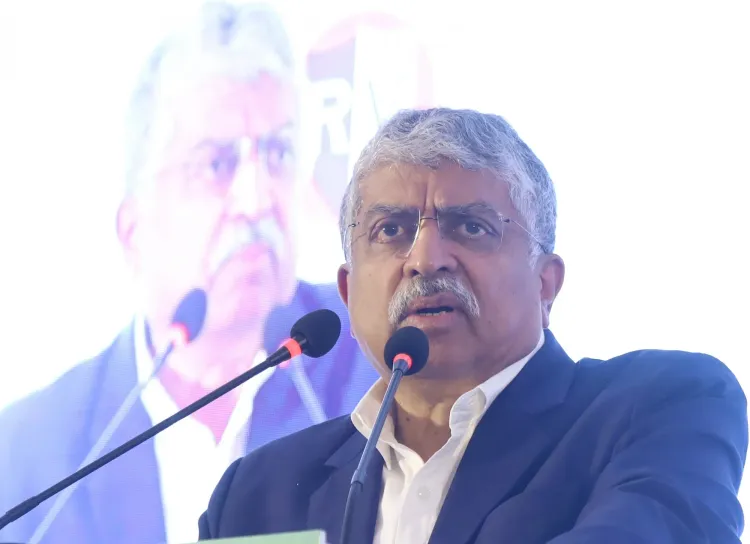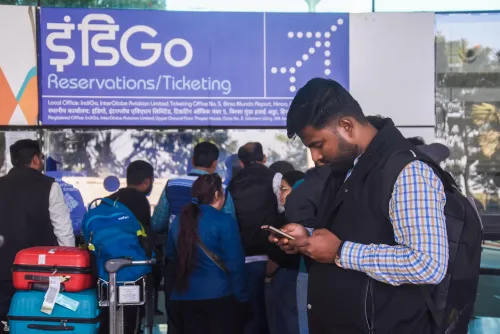India Advancing Its AI Initiative, Asserts Nandan Nilekani

Synopsis
Key Takeaways
- India is focused on scaling its AI initiatives.
- Smaller models are in development, requiring enhancement.
- Trusting AI represents a significant shift in technology.
- Integration of AI into existing systems is challenging.
- India’s digital progress provides an advantage in AI.
New Delhi, April 11 (NationPress) India is not lagging in the global quest for artificial intelligence (AI) supremacy and is now concentrating on enhancing its own AI initiative, stated Infosys co-founder and Aadhaar creator, Nandan Nilekani, on Friday.
He emphasized that the Indian AI initiative is already operational and progressing with smaller models that require scaling up.
“Indians should not be concerned about not having created large AI models like some other nations. We should not be losing sleep because someone has not built any AI models,” he remarked while addressing the ‘Global Technology Summit’ here.
“India is already on the path of advancement. Now discussions should center around scaling it up,” Nilekani added.
He also discussed how this AI revolution differs from previous technological changes. “One of the primary distinctions between past tech revolutions and the current one is that for the first time, we aim to place trust in non-human intelligence,” Nilekani noted.
In earlier times, technology was predictable and adhered to clear instructions. However, with AI, we are anticipating machines to make decisions—a significant leap of faith, he stated.
While AI generates considerable enthusiasm, Nilekani warned that its execution will not be straightforward.
“The true challenge lies in integrating AI into daily systems. AI does not imply it will be easier. It will require the same effort, if not more,” he asserted while speaking at the summit.
According to him, successful AI adoption necessitates substantial changes in the functioning of enterprises and various governments.
“You must modify the workflow in enterprises or government so that AI becomes part of it. We need to undertake significant upgrades, but the fundamentals still hold importance,” he stated.
Despite these obstacles, India’s advancements in digital transformation over the past 15 years provide it with an advantage.
“Given India’s current situation and the technological sophistication we have achieved, the gap between global developments and AI in India will be very narrow,” he remarked.
“Enterprise AI is considerably more challenging and will take a long time, but the most difficult aspect is implementing AI in the public sector due to structural limitations,” he added.










